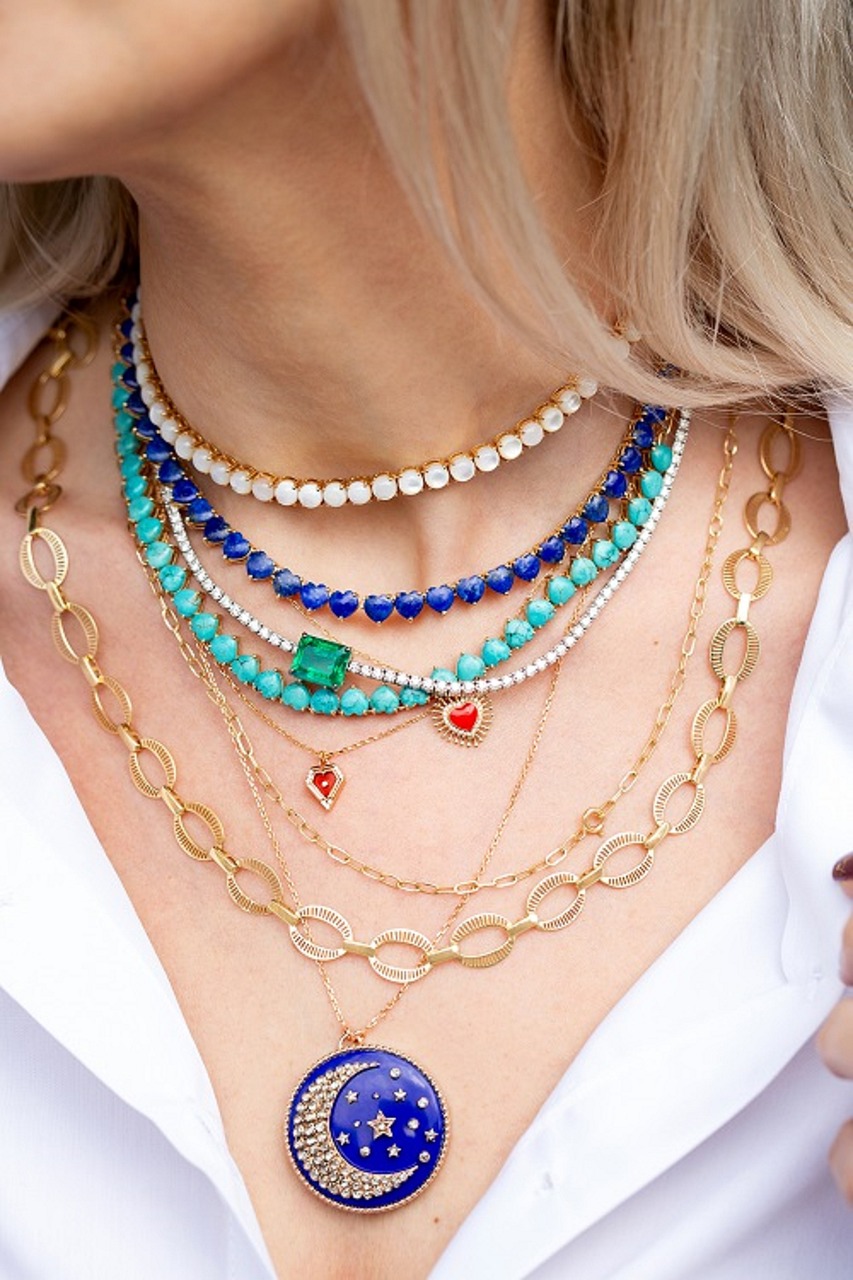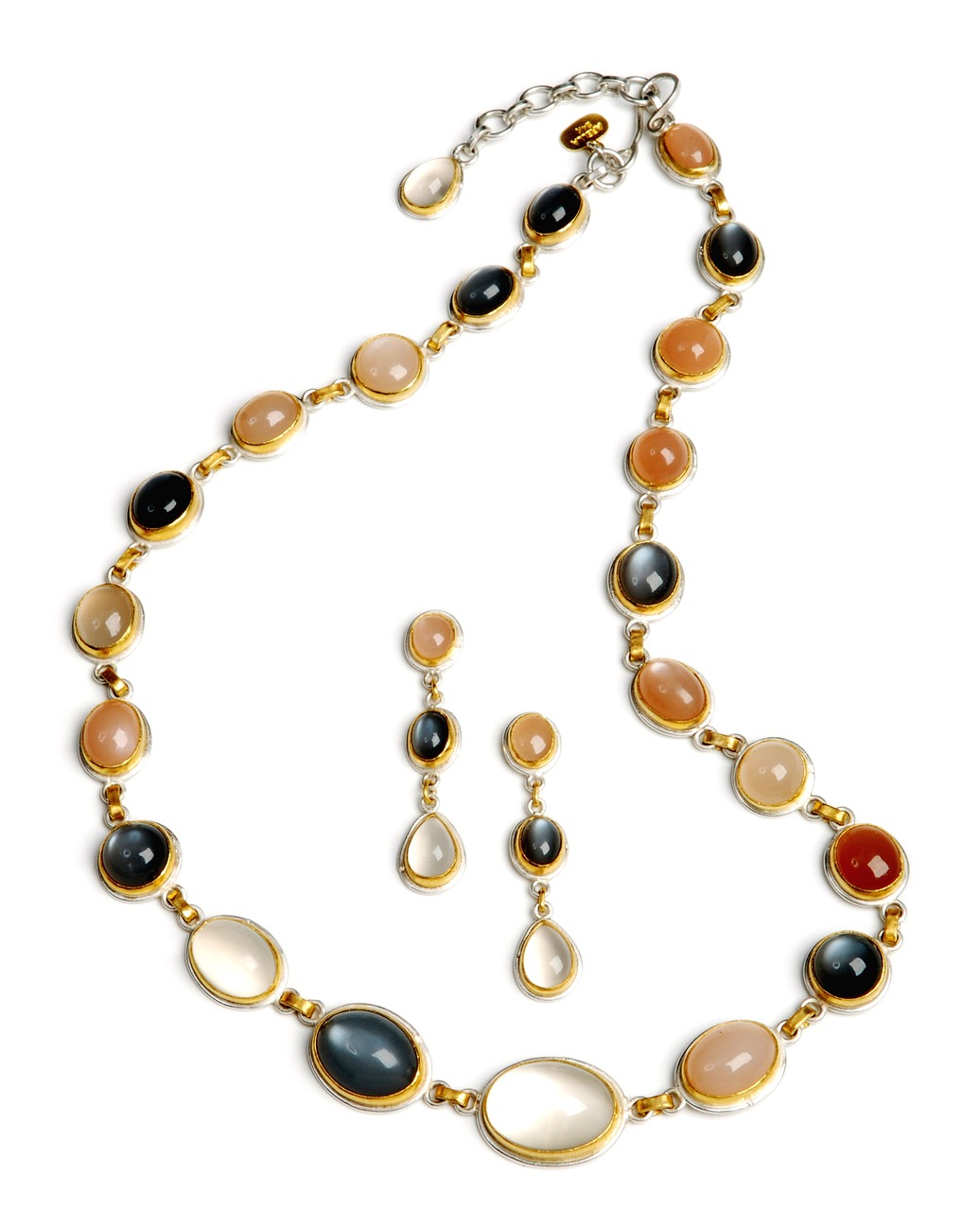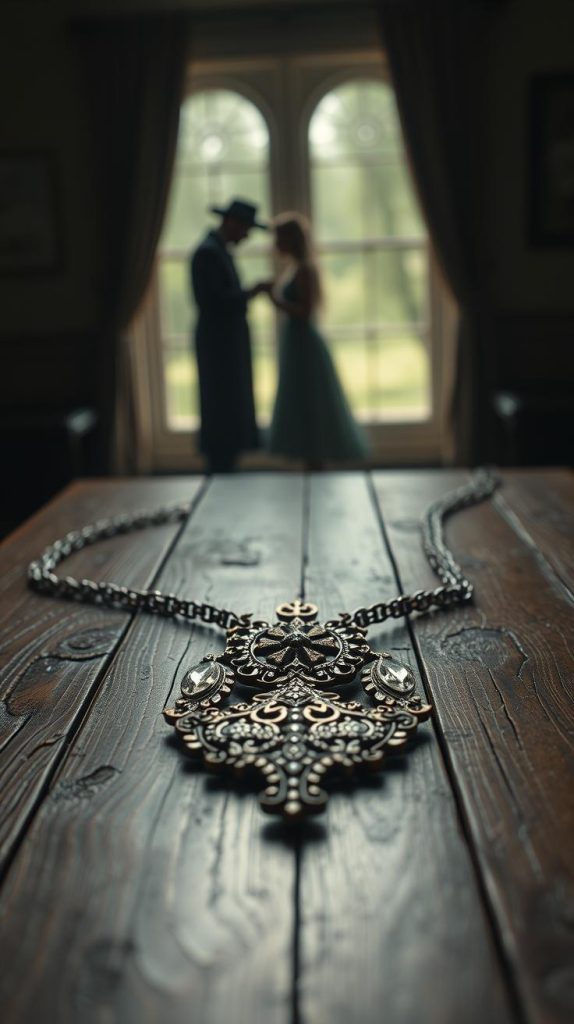AITA for refusing to give my late aunt’s heirloom necklace to her daughter?
 Image credit: Pixabay (This is example image – Not the actual photo)
Image credit: Pixabay (This is example image – Not the actual photo)
Family Heirlooms and Complicated Legacies
When a cherished family heirloom becomes a point of contention, the bonds of family can be tested in unexpected ways. After receiving a beautiful antique necklace from her late aunt, a woman finds herself in a moral dilemma when her cousin demands the necklace for her wedding, claiming it rightfully belongs to her. As tensions rise, the story explores themes of ownership, grief, and the complexities of familial relationships, making it a relatable scenario for anyone who has navigated the emotional landscape of family legacies. Can love and loyalty withstand the pressures of entitlement and expectation?
Family Drama Over an Heirloom Necklace
In a recent family conflict, a 27-year-old woman found herself at the center of a dispute regarding a cherished antique necklace that had been passed down through generations. The necklace was given to her by her late aunt, who had a close relationship with her. Here’s a breakdown of the situation:
- Background: The necklace was a family heirloom that the aunt gifted to her niece before passing away, expressing her desire for the niece to treasure it.
- Wedding Tension: The niece’s cousin, Lily (29F), is preparing for her wedding and requested to borrow the necklace as her “something old.”
- Unexpected Request: Initially agreeing to lend the necklace, the niece was taken aback when Lily expressed her desire to keep it permanently, claiming it should have been hers all along.
- Conflict Resolution Attempts: The niece attempted to clarify that the necklace was a gift from her aunt, meant specifically for her, and she was not willing to give it away.
- Emotional Reactions: Lily became upset, arguing that her mother would have wanted her to have the necklace, labeling her cousin as selfish for not complying with her wishes.
- Family Pressure: The niece’s mother and other relatives have weighed in, suggesting that she should relinquish the necklace to Lily, emphasizing its sentimental value for the wedding.
The niece feels conflicted, understanding Lily’s emotional attachment but firmly believing that her aunt had valid reasons for choosing her as the recipient of the necklace. She is grappling with feelings of guilt and the pressure from family members to resolve the conflict by giving in to Lily’s demands.
Ultimately, this situation highlights the complexities of family dynamics, especially when it comes to heirlooms and personal attachments. The niece is standing her ground, believing that the necklace represents a special bond with her aunt, and she is not willing to be guilted into giving it away.
As the wedding approaches, the tension continues to rise, leaving the family to navigate the delicate balance between honoring the past and addressing the present desires of its members.
This is Original story from Reddit
 Image credit: Pixabay (This is example image – Not the actual photo)
Image credit: Pixabay (This is example image – Not the actual photo)
Story
My aunt passed away a few years ago, and before she died, she gave me a beautiful antique necklace that had been in our family for generations. She told me she wanted me to have it because we were extremely close. She knew I’d treasure it, and I have ever since.
Now her daughter, Lily, is getting married, and last week she asked if she could borrow the necklace as her something old. I said yes at first because I thought it was just for the wedding day. But then she casually mentioned that she actually wanted to keep it permanently.
I was confused and asked what she meant, and she said it should have been hers all along since it belonged to her mother. She said it was unfair that I had it instead of her and that she deserved it more because she is her daughter. I told her, “I thought you just wanted to borrow it. Aunt gave this to me because she wanted me to have it. I’m not giving it away.”
She got upset and said my aunt was probably just being polite when she gave it to me, and that if she were still here, she would have obviously wanted her own daughter to have it instead. She told me I was being selfish and should do the right thing. Now my mom and a few relatives are saying I should just give it to her because it was her mom’s and it would mean a lot to her on her wedding day.
But to me, this isn’t just some family heirloom. It was a gift meant for me. I understand why she wants it, but my aunt had her reasons for giving it to me.
I don’t think I should be guilted into handing it over just because Lily suddenly decided she wants it now.
View the Original Reddit Post Here
Summary of Reddit Comments
The top Reddit comments indicate a strong consensus that the original poster (OP) is not the asshole (NTA) for wanting to keep the necklace given to her by her aunt. Many users emphasize the importance of honoring her aunt’s wishes and express concern that loaning the necklace could lead to complications, including the possibility of it being permanently taken by her cousin. The advice generally revolves around setting firm boundaries and protecting the heirloom from potential loss or misappropriation.
Verdict: NTA
Expert Advice for Resolving the Heirloom Conflict
Family disputes over heirlooms can be emotionally charged and complex. It’s essential to approach the situation with empathy and understanding for both parties involved. Here are some practical steps to help resolve the conflict surrounding the necklace:
For the Niece (OP)
- Communicate Clearly: Sit down with Lily and express your feelings about the necklace. Explain its significance to you and how it was a gift from your aunt specifically for you. Use “I” statements to convey your emotions without sounding accusatory.
- Set Boundaries: Firmly but kindly state that while you understand her desire to have the necklace for her wedding, it is not something you can give away permanently. Offer to lend it for the wedding day only, if you feel comfortable doing so.
- Involve a Neutral Party: If tensions escalate, consider involving a neutral family member who can mediate the conversation. This person can help facilitate a more productive dialogue and ensure both sides feel heard.
- Document the Heirloom’s History: Create a written account of the necklace’s history and its significance to your family. This can serve as a reminder of its value beyond just a piece of jewelry and may help others understand your perspective.
For Lily
- Reflect on Emotions: Take some time to reflect on why the necklace holds such importance for you. Acknowledge your feelings but also consider your cousin’s attachment to the heirloom.
- Open Dialogue: Approach your cousin with an open mind. Instead of demanding the necklace, express your feelings and ask if she would be willing to lend it for your wedding. Be prepared to listen to her perspective.
- Consider Alternatives: If the necklace cannot be borrowed, think about other ways to incorporate family heirlooms into your wedding. Perhaps there are other items that hold sentimental value that could serve as a “something old.”
- Respect Boundaries: Understand that your cousin has a right to the necklace as it was given to her. Respect her decision if she chooses not to lend it permanently, and try to find a way to celebrate your wedding without it.
For the Family
- Encourage Open Communication: Foster an environment where family members can express their feelings without fear of judgment. Encourage both sides to share their perspectives and feelings about the heirloom.
- Avoid Taking Sides: As family members, it’s important to remain neutral and avoid placing blame on either party. Instead, focus on finding a resolution that honors both the niece’s attachment to the necklace and Lily’s desire to include it in her wedding.
- Promote Understanding: Help both parties understand the emotional weight of the situation. Encourage empathy and remind them of the love and memories associated with the heirloom.
Ultimately, resolving this conflict will require patience, understanding, and a willingness to compromise. By approaching the situation with empathy and respect for each other’s feelings, the family can navigate this delicate issue while preserving their relationships.
Join the Discussion
 Image credit: Pixabay (This is example image – Not the actual photo)
Image credit: Pixabay (This is example image – Not the actual photo)
What do you think? Would you have handled this differently?
Share your thoughts below! Vote: Do you agree with Reddit’s verdict?












